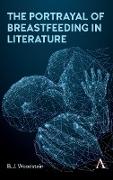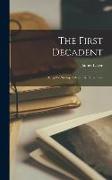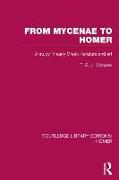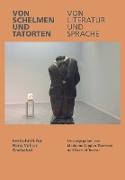The Portrayal of Breastfeeding in Literature
BücherAngebote / Angebote:
How are breasts and breastfeeding shown in literature? Why does the depiction of breastfeeding in literature matter? What messages do we get from literature about the feeding of infants and children and about women's bodies? Is this different in different cultures? What causes cultural and historical differences and what can we learn from them? This cross-cultural study analyses images and descriptions of breasts and breastfeeding in children's books and literature for adults, in both English and Swedish. It explores how breastfeeding is depicted in literature in the two languages and discusses why there are differences in the cultures. Literary, feminist, anthropological, sociological, historical, and cultural research is used to support this analysis and to suggest explanations for the differing depictions. For example, the book discusses the concepts of women being nude versus women being naked, nakedness, the book argues, is more acceptable in Swedish literature and society, whereas a naked female is immediately perceived as nude in English-speaking cultures, and nudity is always sexualised. It discusses the male gaze and challenges ways of seeing women's bodies in literature, a question here is whether women can see their bodies without being influenced by the pervasiveness of the male gaze. Another example of a difference between the two cultures is the rise of formula-feeding and supposedly scientific ways of understanding and managing bodies in many Western countries, including English-speaking ones, and this in turn influences decreasing familiarity and comfort with seeing breasts and breastfeeding in literature, whereas rates of breastfeeding are still high in Scandinavia, which suggests more understanding, acceptance and support of natural bodily functions. In addition, issues such as whether a more feminist political approach might affect how breastfeeding is depicted and how it is treated in society are considered. While this intercultural exploration of breasts and breastfeeding in literature is academic and relies on extensive research, the book also suggests that this reflects popular culture today. Given the rise of the #MeToo movement and our new awareness of people's rights to their own bodies and to consent, it is important that we explore depictions in the media of women's bodies and encourage positive representations. Avoiding naked females in literature or primarily showing them in sexualised contexts suggests a sense of shame and fear about female bodies, or emphasises the idea that women are to be objectified. In short, this book will focus on a topic not yet seen in any depth in academic research and will raise fresh awareness of the power of literature to influence how readers see their own and other people's bodies, and will also illuminate cultural and historical differences that affect what writers describe and illustrators depict in literature when it comes to breasts and breastfeeding. The book challenges the currently prevailing ways of depicting female bodies in literature and discusses the way societal norms influence the writing and illustrating of literature.
Folgt in ca. 15 Arbeitstagen




